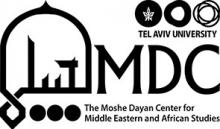"May 15, 1965, was not just another day in Amman. At noon, life in the Jordanian capital came to an abrupt halt for five minutes. Traffic stopped, radio stations went off the air, and a plane that was about to land at the airport was instructed to wait. Black flags flew above the buildings in the kingdom that day – especially in the West Bank – as everyone was primed to hear King Hussein’s traditional May 15 speech. Hotels in the city also stopped serving their guests for those five minutes. Foreign tourists who asked what was going on were told, simply, that it was the day on which the “Nakba of Palestine” is commemorated. The five minutes of silence, it was explained, were intended to demonstrate the solidarity of the kingdom’s inhabitants, on both banks of the Jordan, with those who suffered the trauma of 1948.
In light of that account, it’s somewhat difficult to understand the dominant narrative among Arabs, Palestinians, Israelis and most scholars in the West in recent decades to the effect that during the first half-century after 1948, the memory of the Nakba (or “catastrophe,” in Arabic, when more than 700,000 Arabs fled or were expelled during the founding of the State of Israel) was wrapped in forgetting, silence and suppression. According to that narrative, those who experienced the trauma were unable to process it, and that, along with a deliberate effort by Israel and the Arab states to erase the Palestinians’ identity, resulted in the years-long repression of their collective memory".
Read the full article in English here - Haaretz, 25.6.2021.
Read the full article in Hebrew here - הארץ, 16.6.2021.








